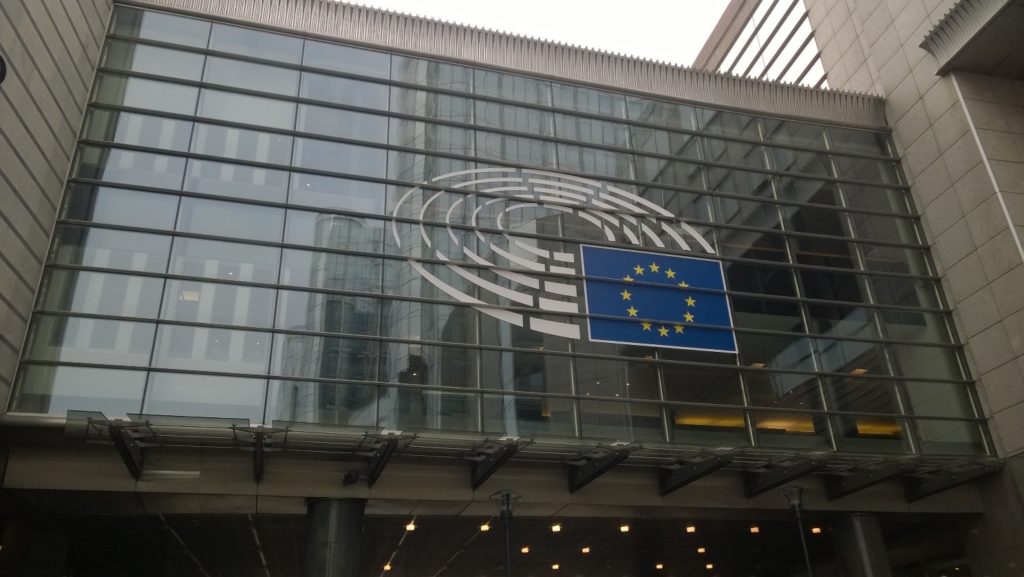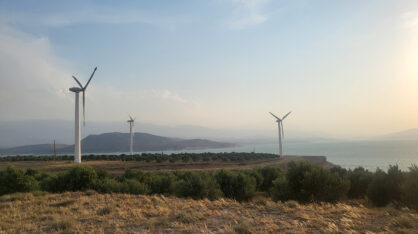In the book The Practice of Management, Peter Drucker argues for the importance of social responsibility (SR) in the roles of managers and businesses (Drucker, P. 1954).[i] While this concept is generally well-established as it relates to the corporate world, the EUSRexcel project recognises that serving the public good is also a concern for the public sector, including HEIs (higher education instituions). SR and the social dimension of education carry increasing importance in Europe. The World Declaration on Higher Education in the Twenty-First Century drafted at the UNESCO World Conference on Higher Education, Paris, 1998,[ii] and the Communication of the 2009 UNESCO World Conference on Higher Education,[iii] put forth that SR is an intrinsic aspect of the HE sector. Universities across Europe are exploring innovative ways to better meet the needs of their stakeholders at regional, national and international levels.
In this article, we briefly present some good good practices drawn from the six European countries that are partners in the EUSRexcel – Towards a European University Social Responsibility Award project. The Erasmus+ Programme-supported project (KA2 – Strategic Partnership in the field of Higher Education) created a new University Social Responsibility (USR) award and a self-evaluation tool for HEIs, both based on an agreed system of indicators. This article draws from the project report, available here: IO2.A4-EUSRexcel-Good-Practices-on-USR_V8.pdf (socialresponsibilityaward.eu).

- Main focuses of USR (University Social Responsibility) dimensions: Educational; Governance; Research; Social & Territorial and Environmental.
- Specific focuses of USR dimensions: organizational governance; SDGs (sustainable development goals); human rights; labour practices; the environment; fair operating practices; consumer issues; community involvement and development; policies related to data protection; policies related to gender equality; access for underrepresented groups; regional engagement (urban/rural); lifelong learning; diversity; other.
Good practices in Social Responsibility in six European countries
Belgium: HR Excellency in Research (HRS4R)
Lead institution/organisation: The University of Liège
Main focus: Educational
Specific focus: labour practices; fair operating practices; policies related to gender equality; access for underrepresented groups; diversity.
Description: The University of Liège developed an HR strategy, strongly embedded in the institutional strategic plan, for providing and supporting a stimulating and favorable working environment for researchers. This project had three cycles (2011-2015, 2015- 2018 and 2017 to 2020) devoted to strengthening the objectives and targets.
The HRS4R consisted of five stages:
- Internal analysis of current practice involving key players (‘gap analysis’).
- Publication of the analysis on the institution’s website.
- Request for the European Commission’s acknowledgment of the strategy.
- Implementation of the HR strategy via its internal quality assurance procedures with a self-assessment after two years.
- External evaluation after four years.
The University received the EU Commission´s 2011 ‘HR excellence in research award’ for this project.
Relevance to a European USR Award: considers the governance dimension of the University, the educational dimension of its researchers and staff, and, particularly, the research dimension of the university.
Finland: ECOLABNET, a network of service providers for eco-innovation in manufacturing SMEs
Lead institution/organisation: VAMK
Main focus: Research, Territorial (Regional)
Specific focus: organizational governance; SDGs; the environment; consumer issues; community involvement and development.
Description: ECOLABNET a network providing eco-innovation services to manufacturing SMEs in the Baltic Sea Region (Denmark, Estonia, Finland, Lithuania, Poland, and Sweden). The core aims are to boost manufacturing companies’ ecological innovations and create a network of eco-innovations service providers.
Actions include:
- Establish a network of research, development, and innovation service providers.
- Develop collaboration concepts for the effective use of research, development, and innovation.
- Foster collaboration between SME companies, intermediary organisations, and RDI organisations.
- Demonstrate the eco-innovations and capabilities of ECOLABNET.
The RDI network offers high-level expertise and infrastructure to SMEs and promotes international networks, active dialogue, and collaboration with SMEs. The network’s competencies range from knowledge in additive manufacturing, bio-based materials, product-service system design, eco-branding, value chain assessment, business model development, legislation and customer insights, to certifications and life cycle assessment.
Relevance to a European USR Award: addresses the third USR area, serving society; strongly linked to all university activities from governance to research and development, and education. Demonstrates how universities can connect directly to the wider society to exercise SR.
Ireland: Ashoka U Changemaker Campus Initiative
Lead institution/organisation: Ashoka U
Main focus: Educational, Territorial (Regional)
Specific focus: SDGs; human rights; labour practices; the environment; fair operating practices; community involvement and development; access for underrepresented groups; regional engagement (urban/rural); lifelong learning; diversity.
Description: The Ashoka U Initiative, founded in 2008, provides HE innovators with the skillsets and mindsets to drive institutional change and lead changemaker education initiatives. The Ashoka Initiative demonstrates that HEIs can support a dual mission to deliver high-quality education and create societal good.
- Annual ‘Ashoka U Exchange’ connects 700 participants from 150 HEIs in 30 countries.
- ‘Ashoka U Commons’ online professional development programme supports continuing education for faculty and staff engaged in social innovation education initiatives.
- ‘Ashoka U Changemaker Campus’ designates diverse global institutions of different sizes (public and private) as Changemaker Campuses.
In 2017, over 40 colleges and universities across nine countries were designated Changemaker Campuses. These institutions undergo a rigorous, thorough assessment. Designated HEIs serve as role models sharing ‘a new vision for higher education as a transformative force for social change´ (Ashoka U 2018. Changemaker Institutions, p. 21).
Relevance to a European USR Award: comprehensive and covers many areas of USR. Envisions HEIs that ‘feel a responsibility to create positive social impact as part of and beyond core institutional operations’ (Ashoka U 2018, p. 19).
Italy: Course on Sustainability Science
Lead institution/organisation: Sapienza Università di Roma
Main focus: Educational
Specific focus: SDGs; lifelong learning
Description: In 2019 Sapienza Università di Roma launched an interdisciplinary degree course on Sustainability Science. The course introduces sustainability as an element of societal, cultural progress and focuses on the possible application of sustainable models in a range of sectors and scientific disciplines. The course is free to all students enrolled in Sapienza degree programmes and comprises a basic track with general principles and a specific one, split into the following scientific domains according to the students’ competencies and expertise: Law; Natural Sciences; Civil Engineering; Aerospace; Architecture; Economy; Social, political and communication sciences. Additionally, the sustainability course builds on students’ transversal skills.
Relevance to a European USR Award: incorporates a main USR dimension within an HEI´s curricula. USR training, especially interdisciplinary, is an impact indicator.
Romania: EduLab4Future – Stepping-up and Promoting Education & Innovation toward Sustainable
Lead institution/organisation: University Politehnica of Bucharest
Main focus: Educational
Specific focus: SDGs; the environment; community involvement and development.
Decription: The ERASMUS+ -funded EduLab4Future project intends to:
- Create vectors of cross-border cooperation.
- Foster open exchange of knowledge on SDGs.
- Address EU priorities and national challenges.
- Grasp opportunities created by new developments in digital learning.
The project will create stronger links between HEIs and business communities and civil society to enhance social cohesions and active citizenship. An extensive analysis of SDG- knowledge and understanding was performed to identify relevant learning needs on sustainability-related topics. Following this analysis, training content addressing actual global /local challenges was developed and piloted through short-term training events hosted by partner institutions engaging HE students, academics, experts, and social partners.
Relevance to a European USR Award: promotes cross-border cooperation involving HE actors to foster an open exchange of knowledge on SDGs and address local, national, and regional challenges in line with EU priorities. Matches educational provision with local community needs.
Spain: Empirical analysis of university social responsibility in Andalusia
Lead institution/organisation: Universidad Autónoma de Madrid
Main focus: Research, Territorial (Regional)
Specific focus: organizational governance; regional engagement (urban/rural)
Description: A ‘Model for reporting about social responsibility’ was launched in 2007 to study the increasing number of initiatives focused on SD in the university sphere. Once reports were published on most Andalusian universities, the current state of SR in the Andalusian Public System of Universities was evaluated from a continuous improvement perspective. With this frame, the content from the reports was analysed in detail, taking the template recommended by the Andalusian Forum as a reference for comparative purposes. The results show the strong level of social sustainability reporting practices in the Andalusian public university sector, where universities have increasingly been promoting and carrying out SR practices that improve their commitment to SD.
Relevance to a European USR Award: holistic, global approach (GRI indicators) could be replicated for the USR award system. This review of selected good practices from EUSRexcel partner countries illustrates some of the dynamic initiatives in all five dimensions of USR (Educational, Governance, Research, Social & Territorial, and Environmental) in HEIs. Many of the good practices reviewed in the project report align well with targets in the United Nations 2030 Agenda for Sustainable Development, including the SDGs. They also align with the indicators compiled in the ‘Guide towards a common approach to USR indicators’ (EUSRexcel Guide), which is another output of the EUSRexcel project. The project partners hope that the examples will be helpful to HEIs in their journey towards USR excellence. While significant progress has been achieved in several countries, much remains to be done to ensure the continuity of efforts.
[i] Drucker, Peter F. (1954). The Practice of Management
[ii] World Declaration on Higher Education for the Twenty-First Century: Vision and Action (1998). Referred on 1.9.2021: http://un-documents.net/wdhe21c.htm
[iii] World Conference on Higher Education Communiqué (2009)




